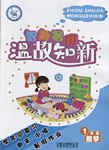题目内容
“It hurts me more than you” and “This is for your own good” — these are the statements my mother used to make years ago when I had to learn Latin, clean my room, stay home and do homework.
That was before we entered the permissive period in education in which we decided it was all right not to push our children to achieve their best in school. The schools and the educators made it easy for us. They taught that it as all right to be parents who take a let-alone policy. We stopped making our children do homework. We gave them calculators, turned on the television, left the teaching to the teachers and went on vacation.
Now teachers, faced with children who have been developing at their own pace for the past 15 years, are realizing we’ve made a terrible mistake. One such teacher is Sharon Klompus who speaks of her students “so passive” and wonders what has happened. Nothing is demanded of them, she believes. Television, says Klompus, contributes to children’s passivity. “We’re talking about a generation of kids who've never been hurt or hungry. They have learned somebody will always do it for them, instead of saying 'go and look it up’, you tell them the answer. It takes greater energy to say no to a kid.”
Yes, it does. It takes energy and it takes work. It’s time for parents to end their vacation and come back to work. It's time to take the car away, to turn the TV off, to tell them it hurts you more than them but it's for their own good. It's time to start telling them no again.
1.Children are becoming more inactive in study because _______.
|
A.they watch TV too often |
B.they have done too much homework |
|
C.they have to fulfill too many duties |
D.teachers are too strict with them |
2.By “permissive period in education” (L.1, Para. 2) the author means a time _______.
|
A.when everything can be taught at school |
|
B.when every child can be educated |
|
C.when children are permitted to receive education |
|
D.when children are allowed to do what they wish to |
3.The main idea of the passage is that _______.
|
A.parents should leave their children alone |
|
B.kids should have more activities at school |
|
C.it's time to be more strict with our kids |
|
D.parents should always set a good example to their kids |
1.A
2.D
3.C
【解析】
1.A 推理题。根据第三段4,5行内容Television, says Klompus, contributes to children’s passivity.可知看电视是引起学生学习被动的一个主要原因。
2.D猜测句意题。根据横线后面得in which we decided it was all right not to push our children to achieve their best in school指在这段时期里,让孩子做他们想做的事情。故D正确。
3.C 主旨大意题。文章在第三段中提及父母为孩子做了太多的事情,放任孩子自由,导致孩子没有受到挫折的打击,所以应该对孩子有更高的要求。故C正确。

 智趣暑假温故知新系列答案
智趣暑假温故知新系列答案People use their mouths for many things. They eat, talk, shout and sing. They smile and they kiss. In the English language, there are many expressions using the word“mouth”.
For example, if you say bad things about a person, the person might protest and say“Do not bad mouth me. ”Sometimes, people say something to a friend or family member that they later regret because it hurts that person’s feelings. Or they tell the person something they were not supposed to tell. The speaker might say:“I really put my foot in my mouth this time. ”If this should happen, the speaker might feel down in the mouth. In other words, he might feel sad for saying the wrong thing.
Another situation is when someone falsely claims another person said something, the other person might protest,“I did not say that . Do not put words in my mouth. ”
Some people have lots of money because they were born into a very rich family. There is an expression for this, too. You might say such a person“Born with a silver spoon in his mouth. ”This rich person is the opposite of a person who lives from hand to mouth. This person is very poor and only has enough money for the most important things in life, like food.
Parents might sometimes withhold(拒给)sweet food from a child as a form of punishment for saying bad things. For example, if a child says things she should not say to her parents, she might be described as a mouthy child. The parents might even tell the child to stop mouthing off.
But enough of all this talk, I have been running my mouth long enough.
【小题1】In what kind of situation will a person say“Do not bad mouth me. ”?
| A.When he feels down. | B.When he feels regretful. |
| C.When he is spoken ill of. | D.When he feels proud. |
| A.Do not bad mouth me. |
| B.I really put my foot in my mouth this time. |
| C.Do not put words in my mouth. |
| D.Stop mouthing off. |
| A.he is badly-off | B.he is hard-working |
| C.he is well-off | D.he has enough to eat |
| A.I have run a long way. | B.I have been a mouthy person. |
| C.I have learned a lot. | D.I have talked too much. |